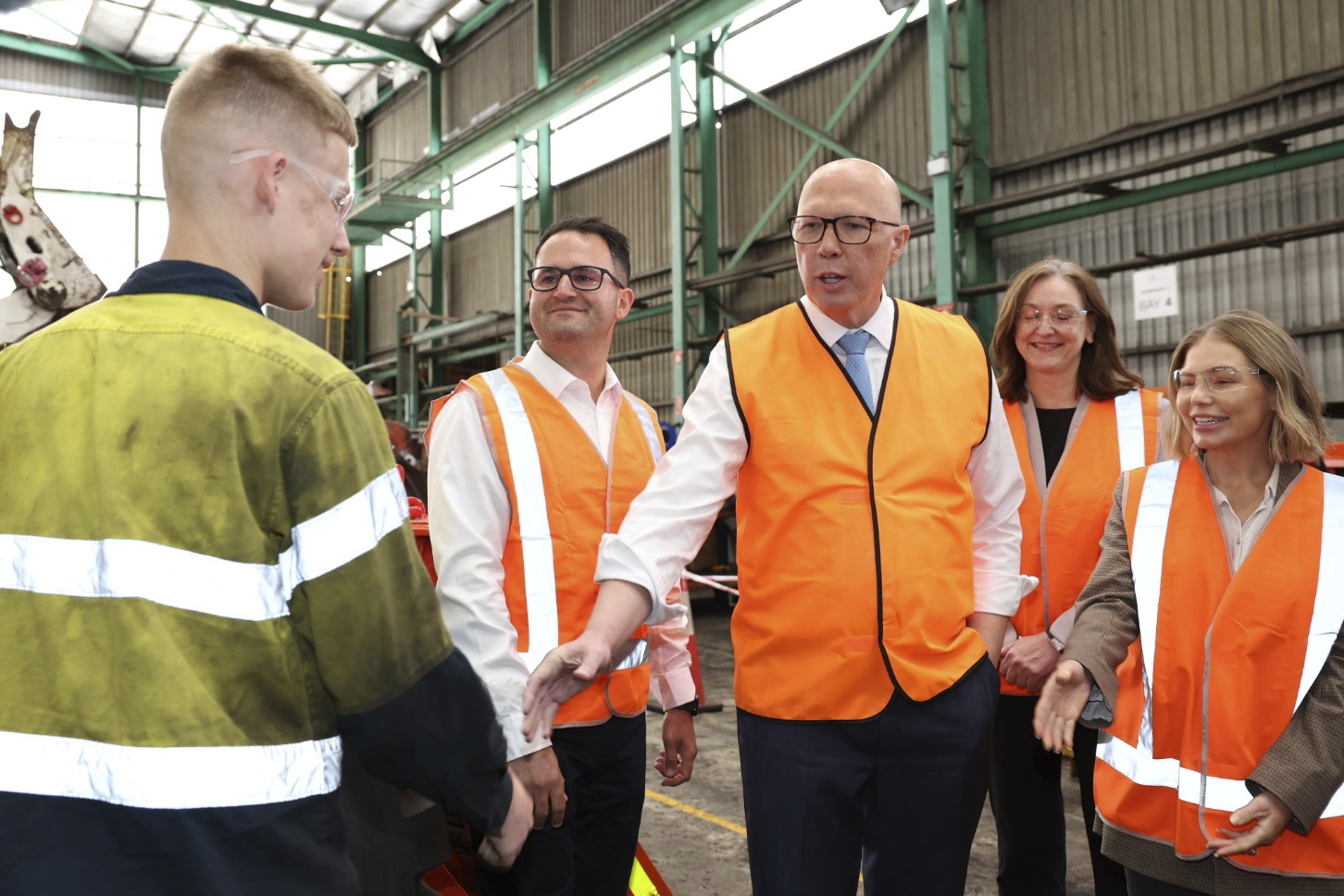
CANBERRA - Australia's opposition party has announced it will further cut the country's international student intake if it wins power in the country's general election.
Peter Dutton, leader of the opposition Coalition and Australia's alternative prime minister, on Sunday announced that the party will introduce a flat 25 percent cap on foreign student enrolments at the country's universities in a bid to ease the housing crisis if it wins the May 3 election.
Under the policy, the number of international students at Australian universities would be reduced to about 240,000 from 2026, down from a high of 320,000 in 2023. The governing Labor Party in 2024 moved to cap international student numbers at 270,000 from 2025 but failed to pass its legislation through the parliament.
ALSO READ: Australian universities face funding woes
Dutton also said on Sunday that a Coalition government would raise the student visa application fee to A$5,000 ($3,021) for the Group of Eight (Go8), an organization comprising eight elite universities, and to A$2,500 for other institutions.
A new fee of A$2,500 would also be introduced for students who want to change education providers.
Labor in 2024 increased the international student visa application fee from A$710 to A$1,600.
Dutton told reporters in Melbourne on Sunday that the Go8 has "made a lot of money" in the international student market but that it has been "distortionary" to the housing market.
ALSO READ: Australian universities: Cap on foreign students could cost 14,000 jobs
"We're cutting migration because we want to put Australians first," he said.
Responding to the policy, Go8 chief executive Vicki Thomson described blaming international students for the housing crisis as a "flawed policy."
She said in a statement that raising visa application fees would reinforce "negative and damaging messages" sent by Australia to the international education market in recent years and that doing so "makes no sense on any level."
"Targeting international education will have damaging consequences across the economy. We can and we must do better," Thomson said.
READ MORE: Aussie top universities say US funding at risk due to Trump crackdown
Luke Sheehy, chief executive of industry body Universities Australia, told Australian Broadcasting Corporation television that both sides of politics have been in a bidding war to "take a sledgehammer" to the country's international education industry.
According to the Department of Education, international education was worth A$51 billion to the economy in 2023-24, making it Australia's fourth-most valuable export behind iron ore, coal and natural gas.

Making his own major policy announcement on Sunday, Prime Minister Anthony Albanese pledged that a re-elected Labor government would spend A$2.3 billion subsidizing 30 percent discounts for home battery installations.
Albanese told a Labor Party event in Brisbane that one-third of Australian households have rooftop solar systems but only one in every 40 have batteries.
The government estimates that 1 million new batteries will be installed by 2030 under the policy.
Albanese said that the discount would reduce the cost of a typical household battery installation by A$4,000 and reduce the average annual electricity bill by A$1,100.


